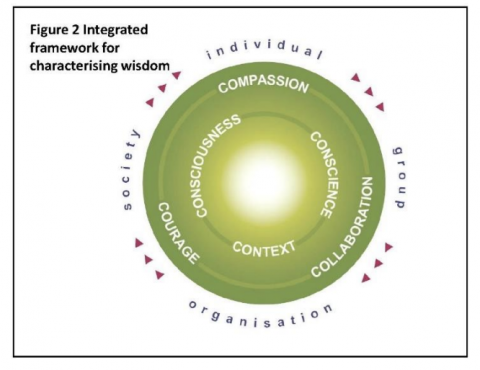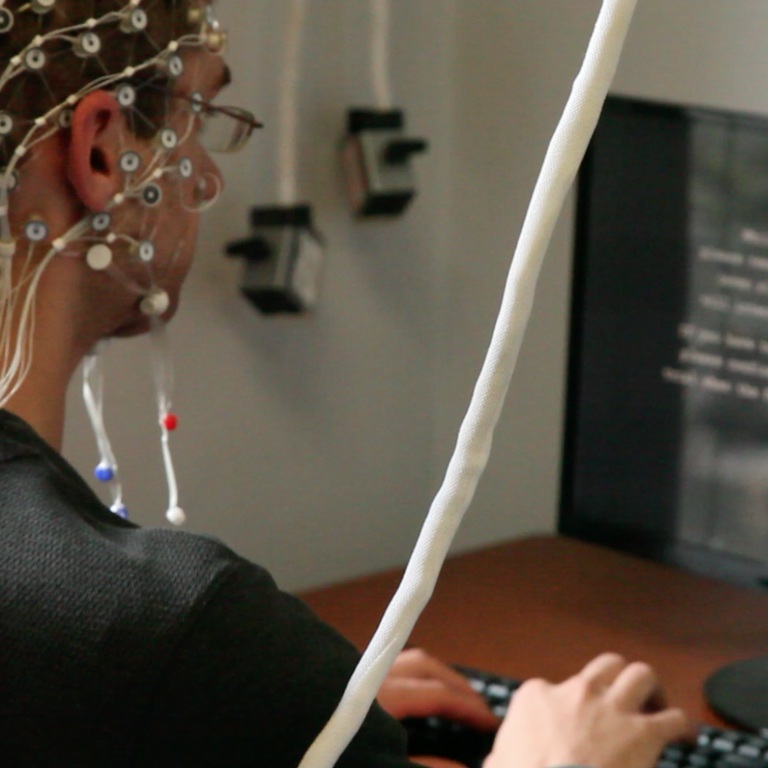My favorite takeaway from this conversation: Develop listening skills to begin on a path toward wisdom. Are you listening? Are you hearing? Are you open and truly noticing things?
Dr. Jane Gaukroger is the Founder and Managing Director of the consultancy Cultivating Wisdom Limited. They provide leadership development, organizational development, consulting and coaching. Her body of work focuses on wise leadership development including the book Cultivating Wisdom: A collection of essays for leaders and organization developers and has contributed to wisdom center discussions on Organisational Wisdom. Gaukroger’s recently published research stems from a collaboration with Leeds Beckett University, co-authored with Johnny Craike, Sam Crossley, and Poppy Jagger for the European Mentoring & Coaching Council (EMCC).
Jean Matelski Boulware: Briefly describe your leadership and business consulting and how you started focusing on wisdom and wise leadership.
Jane Gaukroger: My whole career has been in the organizational development and people development space. My focus on wisdom was prompted by the financial crash in 2008 when I started to think there was something not quite right here. These places spend a lot of time developing their leaders and invest huge amounts in them - and yet we've got this crisis.
And there were other organizational scandals here in the UK – phone hacking (gaining access to personal data, banking, etc through mobile phones]. Members of Parliament claiming expenses which didn’t seem appropriate and other things in the police and heath service. And I began questioning what was going in leadership and organizational development; what good was it doing? As I was reading around organizational ethics, there was a moment when I started to notice the word wisdom cropping up - and I simply began to follow that route.
It then became the topic of my thesis, which had the title Organizational Wisdom. What’s the contribution of the organization development practitioner? And that's what took me deeper into it.
Boulware: You recently co-authored an EMCC report on Developing Wise Leaders, please tell us a bit about that research.
Gaukroger: The EMCC is the European Mentoring and Coaching Council. Though we actually worked with a group of coaches from all over the world. We focused on how we can apply concepts of developing wise leaders – inviting the group to think about wisdom in their coaching practice.

We drew on the earlier research and provided them with the ‘cultivating wisdom wheel’ model of six characteristics of wisdom: consciousness, conscience, context, courage, compassion, and collaboration. Consciousness, conscience, and context are more ‘inner’ and sense making. Outside those are collaboration, compassion and courage which are more behavioral. We wanted to just get coaches them opening up to these ideas. We offered them that model, if they wanted to use it, as a way of saying this is how you might talk to somebody about wisdom or share it with people.
Boulware: Were there any challenges with bringing the idea of wisdom into consulting and coaching?
Gaukroger: Mainstream coaching traditions stem from branches of therapy and sports coaching which are quite individualistic and performance oriented. Whereas, I think, wisdom comes up against the individualism and the individual organizational performance, because wisdom broadens your perspective and asks, “How we are contributing to the greater good?”
I think one of the challenges was the sense that incorporating wisdom could be taking us into a space we weren’t used to in coaching. Some of our participant groups were a little bit discomforted by the idea that it would be more than simply listening to the individual and where they were. That [listening] is so much the essence of what coaching practice has been. And I think my co-writers would say that we don't have any easy answers because we are not saying that perspective is wrong, but it’s possible it's not sufficient for the big challenges we face like the climate change and inequality.
I think it [incorporating the greater good] challenges some of the premises of coaching, but it doesn’t cut across them entirely. Coaching deals with a sense of purpose and wisdom widens that purpose. We are just saying the challenges in the world are bigger so talking about my singular performance isn't big enough. Let's work with it. Let's see what the next evolution is.
And while this was a challenge, the response from the group was definitely a response of interest. There was quite a hunger from most of the participants to do something more with it.
Boulware: Where do you take it from here? You have this report, and you have this hunger for more, so where do you go now?
Gaukroger: Well, I think it's stretching us in our own practice and how we are working. It's about potentially expanding the impact of coaching. And I think the EMCC are interested in that. We haven't been so bold as to say it should be in the curriculum, but I would love to see wisdom there. You probably do have to, at some point, be explicit about it - and dare to say, let’s really pay attention and have something on wisdom. I don't think we are there yet, but my hope is there are more and more people warming to it.
Boulware: You wrote in your report “it seems wisdom is seen not as an innate virtue that one is either blessed with or not, but rather a set of skills, which perhaps like other skills, can be practiced or developed”. If you had to coach someone, what would be one or two skills to start developing their wisdom?
Gaukroger: I'm going to trust my intuition here and say the one I instinctively go for is to get outside yourself and widen your perspective. Someone who's influenced me on that thinking would be Igor Grossmann. I think it's the consciousness of something bigger than me. There are loads of ways you could do that. People might do that through mindfulness meditation or the technique ‘when I'm in the room, let me see it from your point of view’. So I think it's that skill: developing the sense that it's not all about me.
And I think my second skill would probably be listening. It would be really listening to each other, what's going on, and trying to suspend judgment too quickly. Being curious.
Those are the two that come to me intuitively and instinctively first. The wisdom characteristics do overlap. I think widening perspective and listening are raising consciousness, but listening might also be about context, collaboration and compassion. It might be a skill for all of those because listening is so crucial for that.
And it's listening to each other, but it's listening to the signals of the world. Are you listening? Are you hearing? Are you open and truly noticing things?
And the model is saying wisdom means having the characteristics in balance. Collaboration sounds like a good thing, but it's not a good thing, per se, if you're collaborating around something that's not for the greater good, which is where conscience comes into play.
Gaukroger’s final thoughts: I'm sure you have moments where you think, “where's it going? Is it making any difference? Am I on a track that nobody else is really listening to?” But I am reassured when I meet people and share the idea of wise leadership development. I'm always fearful that somebody is going to say, ‘Oh, that's nonsense.’ But nobody ever does so I keep at it. I just stick with it. I try not to feel too worried about working it too hard but just keep with it; stick with wisdom.
To find out more about Dr. Gaukroger's work, visit Cultivating Wisdom Limited.



